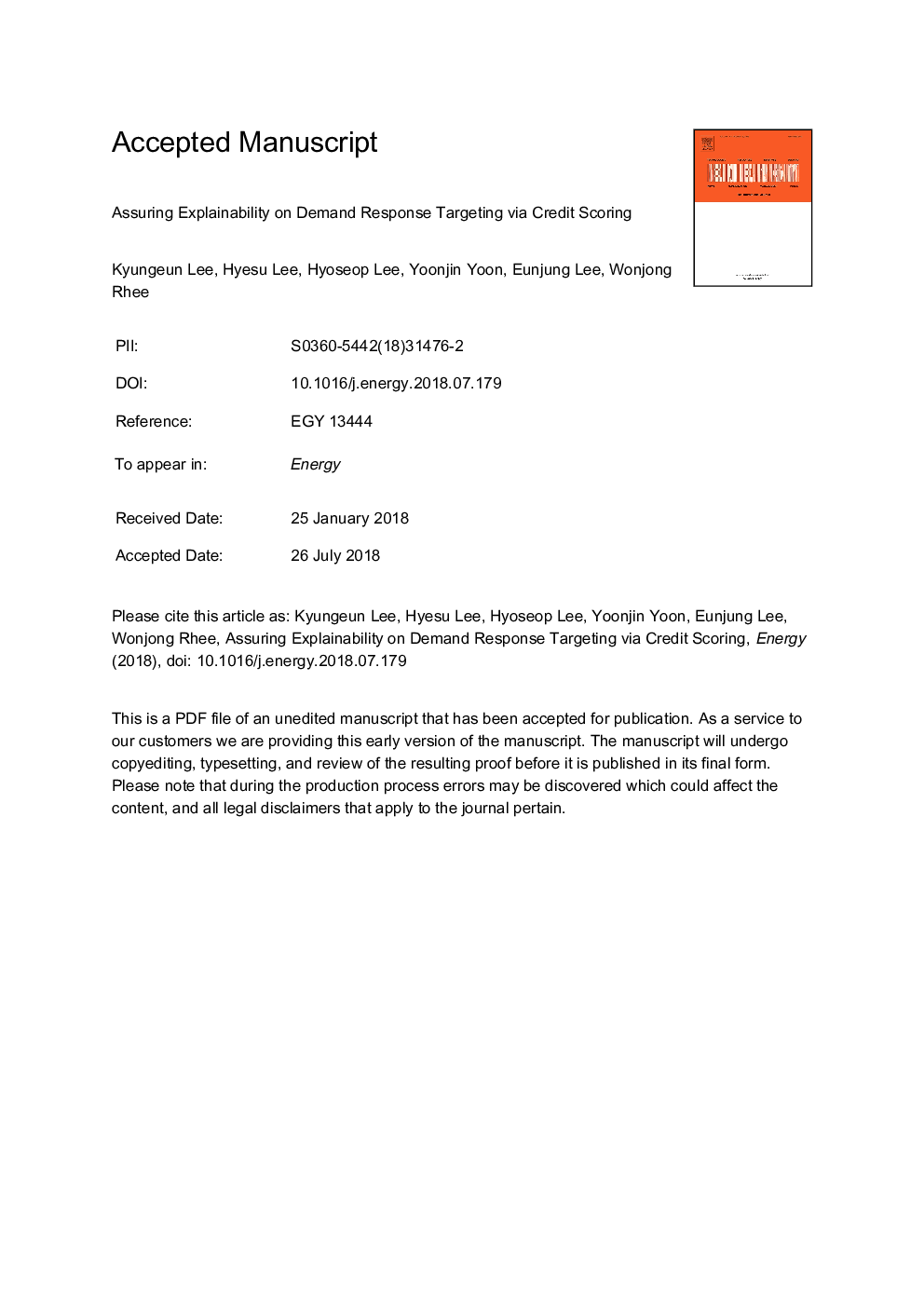| Article ID | Journal | Published Year | Pages | File Type |
|---|---|---|---|---|
| 8070880 | Energy | 2018 | 18 Pages |
Abstract
As data-driven innovation becomes a main trend in the energy sector, explainability of data-driven actions is becoming a major fairness issue for the residential applications, and it is expected to become a requirement for regulatory compliance. Explainability, however, often demands a sacrifice in prediction performance and affects the effectiveness of data-driven actions. In this study, we consider data-driven customer targeting in an incentive-based residential demand response program, and investigate the explainability-performance tradeoff when using simple-rule based, machine learning, and credit scoring methods. Credit scoring, that has been a popular solution in the finance discipline for over 60 years, is a scorecard based modeling method that can surely provide explainability. We first provide the detailed steps of applying credit scoring to the demand response problem. Then, we use a dataset of 14,525 households obtained from a real demand response program and analyze two prediction problems - participation prediction and behavior change prediction. The results show that credit scoring can achieve a comparable performance as the best-performing machine learning methods while providing full explainability. Our results suggest that credit scoring can be a promising explainability option for broader energy sector problems.
Keywords
Related Topics
Physical Sciences and Engineering
Energy
Energy (General)
Authors
Kyungeun Lee, Hyesu Lee, Hyoseop Lee, Yoonjin Yoon, Eunjung Lee, Wonjong Rhee,
